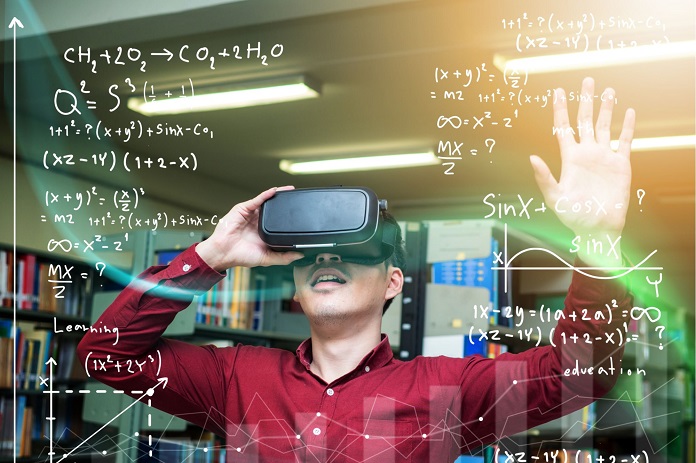The world of education has changed significantly in the last couple of years. Discoveries and technological advancements, global epidemics, and many other factors have completely reshaped the way students learn. Rusty classroom experience where physical presence meant everything was replaced by the flexibility of studying anywhere and anytime. With tons of information available on the internet, multiple opportunities for travel, and foreign internships, students no longer want, nor they can afford it, to be bound to a specific time or place.
And while it seems reasonable that every teacher should be an ed-tech nailer in the circumstances of rapid globalization and technological development, many of them can be hardly called at least laymen. From ed-tech leaders to purists, modern educators have been divided into several factions. We distinguish five types of teachers according to how they respond to educational technologies.

The Purists
Represented mostly by the older generation, purist teachers hang on tightly to their traditional educational practices, methods, and techniques. They highly cherish what they know and despise everything that has “innovation” in its name. Educational technology is something that can never pave the way to their classroom, while the students are forced to write useless notes, often cram the lectures word per word, and complete silly tasks.
While the pen-and-paper approach is still considered a pretty effective method for learning and memorization, it alone is not enough to achieve visible success in the world of computers and technologies. The teachers who pin their faith on outdated educational methods hinder their students’ progress, let alone that they deny themselves a large and quite fascinating part of our world. It is always hard to look in the face of the unknown, but it is the only way to be an impactful teacher.
The Awaiters
Unlike purists, the Awaiters admit the importance of introducing educational technologies and are always both hands for innovations. However, it never goes beyond talking. Such teachers usually visit every seminar, lecture, and master-class on innovative educational methods and ed-tech. However, when it comes to bringing their new skills and knowledge into practice, they follow one good rule: never put off till tomorrow something that you can put off till the day after. Whether it’s their insecurity or simple laziness, we don’t know. Perhaps, they just like the race for a new shiny certificate.

One thing is clear though, students have to be twice as initiative and pushing with the teachers of this kind. Only through collaboration, they have a chance to bring changes into their old-school classroom experience.
The Coulda-Shoulda-Wouldas
If pigs had wings, they could have flown. “If” is the favorite word for this category of teachers. They would have shown everyone how ed-tech changes should be introduced if they had up-to-date computers if they attended that seminar last year if they had better funding and millions of other ifs. Whenever anyone suggests a solution, they come up with another excuse.

Most likely, the Wouldas won’t go the extra mile to introduce any changes for a better classroom experience. The only thing that’s left for students is to take the upper-hand and build their own ed-tech-facilitated environment. For example, they can create cross-college study groups, establish their own “underground” digital library, or even collect money for their VR-room to recreate simulations or build models for their projects.
The Followers
These are the people who track and monitor all the major changes in the fields of education and technology. Sharp as they are, they eagerly get a load of the most relevant innovations made by the pioneers and willingly introduce the best practices in their classes and do a lot of cool and educative stuff with their students.
These teachers are always on the move. They try new methods and techniques, often using technologies in a completely unbelievable and unusual way. Their proactivity may be annoying; at the same time, they are an endless source of useful ideas and advice.
This category of teachers is always ready to introduce or recommend a new effective tech for learning. Unfortunately, in their race for innovative methods, they sometimes lack a system approach and forget that some old-fashioned teaching methods can be effective too.
In the case of the Followers, openness and proactivity are the secrets to a successful student and teacher collaboration. Students should make sure that their teachers get feedback on how efficient their new methods are. If they do, they are second to none in learning from their mistakes and adjusting to changes.
The Pathfinders
These are the pioneers, the leaders, the inventors. In other words, this category belongs to the teachers who are the first to adopt ed-tech changes in their classrooms and share their experiences with the rest of the world. They are, in fact, the shapers of the education industry, whose creativity and enthusiasm bring the boldest changes and introduce the most efficient student experiences. The Pathfinders are exactly the teachers who find balance and harmony between innovation and tradition, and as a rule, they are the most effective educators. Perhaps, their activity can’t be called flawless, but they are the very people who teach their students creative thinking and emotional flexibility by their example.
Mark Walker a recent Princeton University graduate was lucky to know one of the Pathfinders. “I will always remember my English professor Mr. Myers. His creative thinking task on what if Shakespeare was a modern marketer is still ingrained in my memory. In our first lecture, he recommended professional college essay writers to deal with our obligatory writing assignments because, I quote, ‘they were boring’ but we still had to meet the college requirements. Rather than forcing us, he made sure that we wanted to study English literature,” says he.
Everyone can’t be a leader. However, teachers have no other way but to master different up-to-date options, methods, and techniques if they want to continue helping their students to progress in a completely new, digital world.

Awesome post. I am always keen to learn and expand my knowledge by reading informative and detailed blogs; just like yours. You have elaborated each topic wonderfully.
Looking forward to reading more content from you. Thanks for sharing.